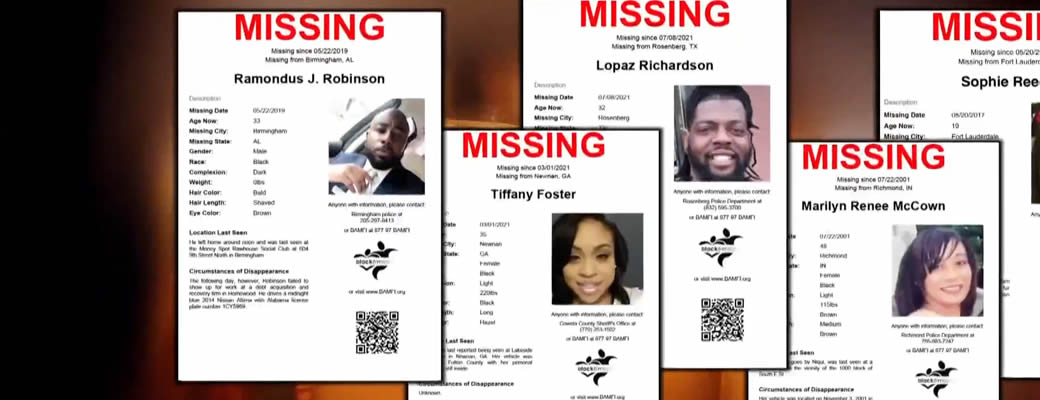Why don’t missing people of color get more attention?
TODAY
Scott Stump
September 24, 2021
The nationwide media spotlight on the case of Gabby Petito has families and advocates of missing people of color speaking out about why the cases involving their loved ones have not received the same amount of attention over the years.
Studies show that cases of missing young white women like Petito, 22, whose body was found on Sunday in a Wyoming campground area, are a small minority of missing persons cases in the United States.
And as the search continues for her missing fiance, Brian Laundrie, there has been growing outrage that missing people of color don’t get nearly the same amount of attention.
Former law enforcement officer Derrica Wilson started the Black and Missing Foundation after seeing too many cases involving people of color ignored.
“I can roll off Sandra Levy, Natalee Holloway, Elizabeth Smart, Caylee Anthony, Gabby Petito,” Wilson told NBC News correspondent Antonia Hylton on TODAY Friday. “But no one can name one person of color that has received that type of mainstream media. Not one person.”
David Robinson has been looking for help in trying to find his son, Daniel, a 24-year-old geologist who disappeared on June 23 in Buckeye, Arizona. Police found his car in a ravine, but there has been little progress in locating him since his disappearance, according to his father.
“We don’t get the same level of urgency,” Robinson told Hylton. “For as much as I really hate to say this, sometimes I think race is a factor.”
There were 543,018 people reported missing in 2020, nearly 40% of them people of color, according to the National Crime Information Center’s Missing Person and Unidentified Person Files.
Black Americans make up 13% of the U.S. population, but account for 35% of missing persons cases.
“Automatically, law enforcement assumes that these children, they’re runaways, these adults, that they are involved in some sort of criminal activity,” Wilson said. “So they’re basically just swept under the rug.”
Indigenous communities have also expressed outrage that they have a disproportionate amount of missing persons who receive scant media attention.
In Wyoming, where Petito’s body was found, the Wyoming Taskforce for Missing and Murdered Indigenous Persons has found that 710 indigenous people have gone missing in the last decade, none of whom have received the level of attention as Petito’s case.
Patsy Whitefoot, whose sister Daisy Mae Heath has been missing for 30 years, started a podcast called “War Cry” to push for more resources, attention and accountability for missing indigenous people.
“It’s been rather disheartening,” Whitefoot said. “There is never any communication, never any follow-up with families. And so the whole justice system just needs to be turned upside down.”
Advocates are hoping more states pass bills like the one in Minnesota earlier this year that created a missing and murdered African American women and girls taskforce to improve how the state handles those cases.
Photo credit: TODAY

